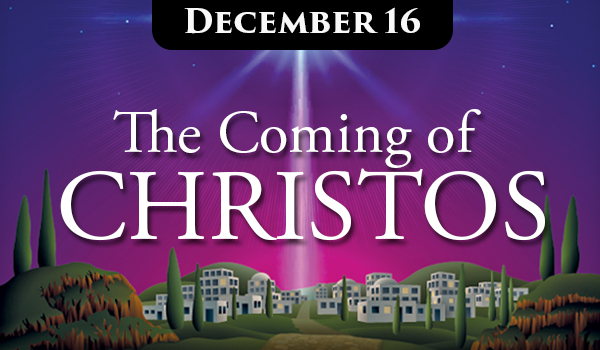Read: Matthew 1:24–25, Luke 2:6–7
And she gave birth to her firstborn, a son.
She wrapped him in cloths and placed him in a manger,
because there was no guest room available for them.
Luke 2:7
At last, the birth of Christos is about to take place. The Anointed One, the Messiah, is about to bring a new reality to the world. The Godhead is about to take human form and bless it with the gift of salvation. As we know, our salvation will come at a heavy price for Jesus as an adult. But let’s continue to focus on the birth story.
Joseph and Mary have been staying in Bethlehem, which in Hebrew may mean “house of bread.” Indeed, the Bread of Life (John 6:48) is about to be born in the house of bread. “Joy to the world, the Lord is come! Let earth receive her King.”
Jesus is born, wrapped in cloths, and laid in a manger. Mangers are common during this time and are usually made from hollowed-out stone. Archaeologists have found several in excavations in Israel. The popular birth narrative is correct, however, in that mangers are used to hold the food for the animals to eat. It is as ideal a place as any for a newborn child to be wrapped up and snugly laid to rest in between feedings from mommy, and it is especially appropriate given the crowded lodging situation.
The prophet Ezekiel gives us the step-by-step process in caring for a newborn such as Jesus. The actual context is a prophecy against Jerusalem, so you will understand why he uses negative phrasing. Jerusalem is compared to a baby girl. “On the day you were born your cord was not cut, nor were you washed with water to make you clean, nor were you rubbed with salt or wrapped in cloths” (16:4).
Just as today, the umbilical cord from Mary to Jesus is cut and the baby is washed. This is simple enough to picture. The practice of rubbing salt on the baby is primarily believed to help the skin develop while being swaddled.
And now the infamous “swaddling clothes” we love to mention. These are actually long strips of cloth wrapped around the baby to make him or her feel snug. It is a warm and comfy place somewhat similar to the womb the baby just exited.
It is also a common practice to wrap the baby like this early on because it is believed to help make the limbs grow correctly. We swaddle babies today because it increases the likelihood that the baby will sleep better, helps prevent Sudden Infant Death Syndrome, and keeps them from scratching themselves.
We will revisit the Savior’s birth on Christmas Day. For today, as we celebrate His arrival on earth a few days early, let’s pray for those we know who haven’t recognized the Messiah and made Him Lord of their lives. Pray for the Jewish people. Pray for your family and friends. As the hymn “Joy to the World” declares, “Let every heart prepare Him room.” And as Paul prays, “my heart’s desire and prayer to God for them is that they may be saved” (Romans 10:1). Amen!

